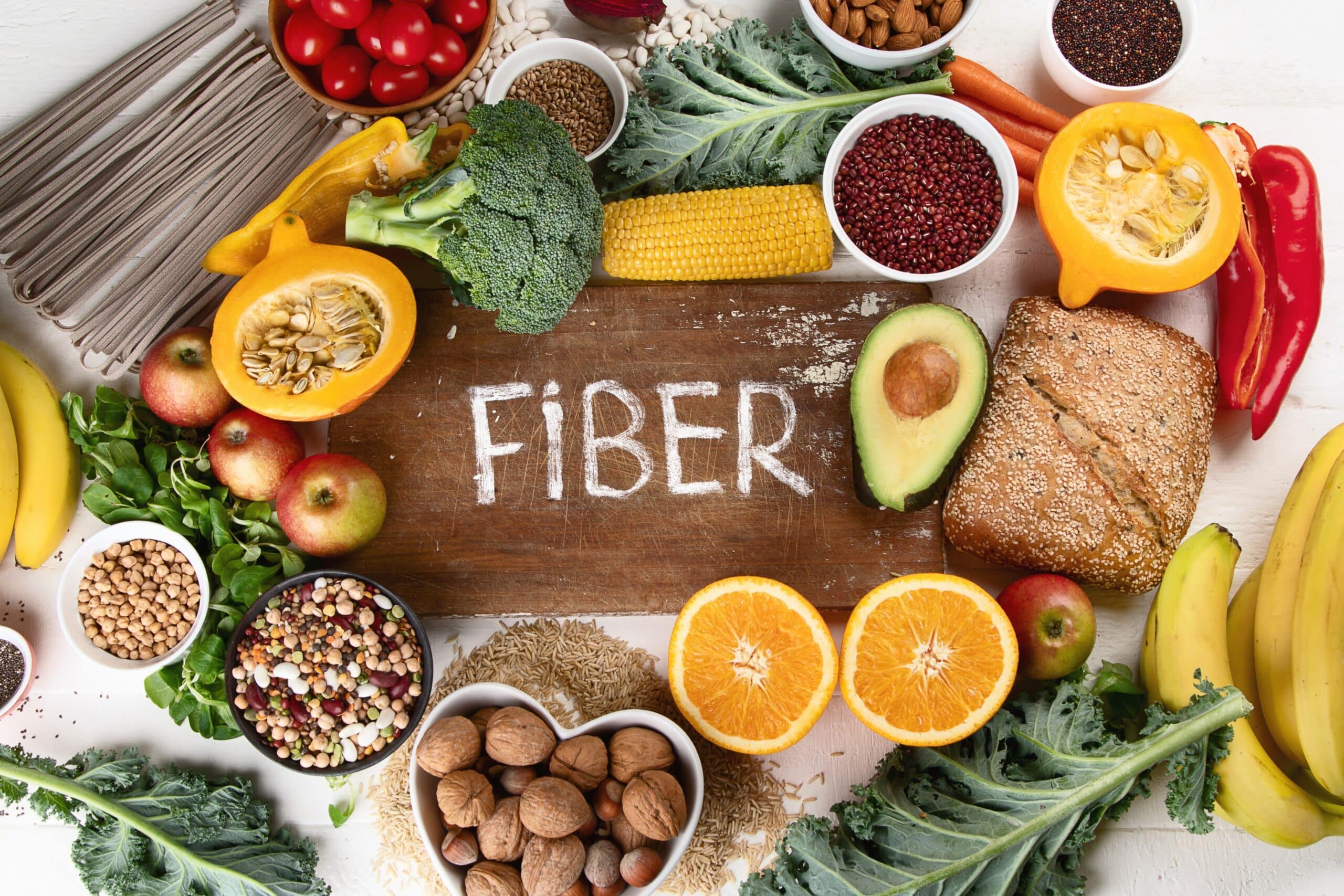Foods high in fiber have been shown to help reduce the risk of premature death and chronic illness by around 15-30% in reduction from heart disease, stroke, type 2 diabetes, and colorectal cancer in those who consumed a high fibre diets as compared to those following a low fibre diet. Clinical trials have also shown high dietary fiber lowers body weight, systolic blood pressure and total cholesterol.
High fiber diets have a misconception as being expensive, however not all dietary fiber is expensive; legumes including beans, chickpeas, and lentils are a good source of protein and rich source of fiber. American dietary guidelines recommend a minimum of 33.6 grams of fiber a day for men and 28 grams of fiber a day for women.
Fiber is beneficial to the gut as it helps to bulk up stool and speed up excretion which has been shown to reduce the risk for several diseases like colon cancer for example. Metabolites such as butyrate are produced by bacteria grazing on fibrous materials within the gut which has been shown to help protect other parts of the body.
In rural African communities that consume high fiber diets colon cancer is rarely observed, to understand why researchers changed their diets with communities eating low fiber and vice versa for two weeks. Both groups saw changes in gut microbiome and metabolites produced in the gut, which was associated with changes in several biomarkers associated with cancer. It was concluded increasing fiber and reducing fat may lower the disproportionally high incidence of colon cancer in African Americans.
Beneficial effects of fiber may be due to confounding effects as food rich in fiber are also often rich in other nutrients, and those who eat high fiber diets may be more health conscious and follow a better lifestyle than others as well.
Obtaining daily nutritional quotas via pills is a relatively new innovation designed to combat the lack in the average Western diet following development of foods where the fiber content is often synthetic in nature. Studies show that artificially high fiber foods can help to reduce cholesterol but the long term effects of synthetic or extracted fiber remain to be seen.




